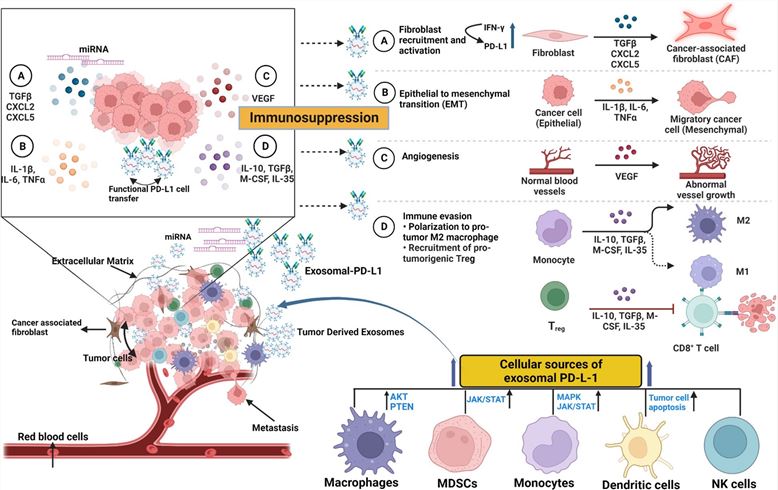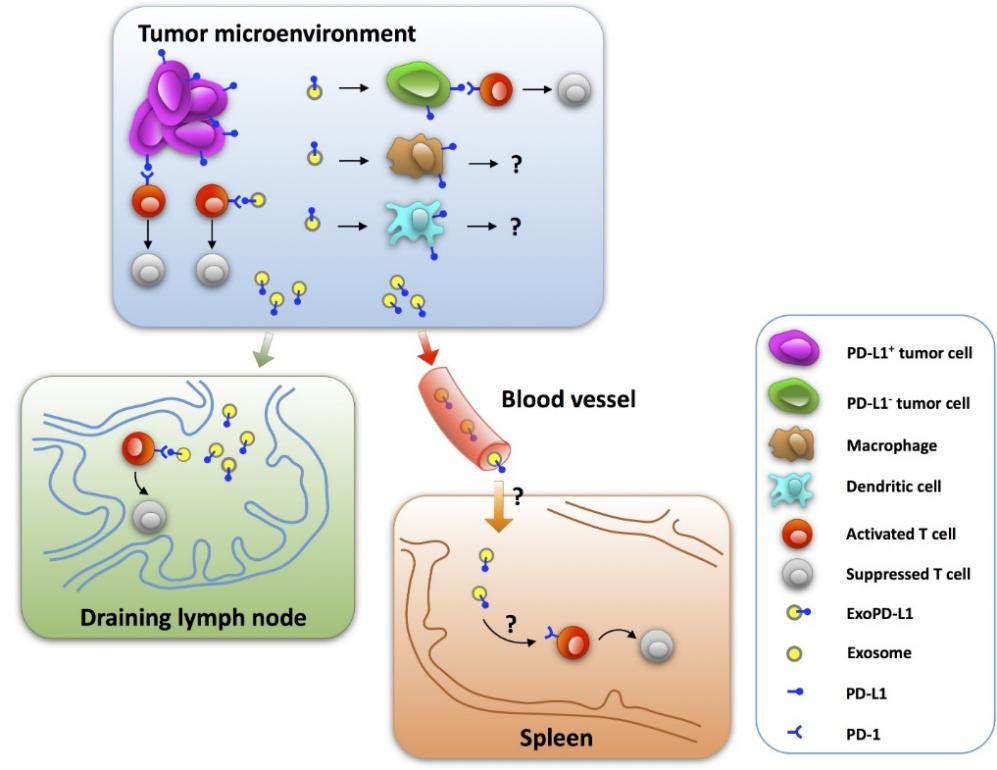Tumor Treatment Assessment-Applied Exosomes
Despite the rapid development of medicine, malignant tumors are still one of the diseases that seriously endanger human life and health. Surgery, chemotherapy, radiotherapy, targeted therapy, and immunotherapy are the main treatments for tumors. However, adverse reactions following treatment cannot be ignored, among which drug resistance and PD-L1-mediated tumor immunosuppression are the two most concerning reactions. As vesicles released by cells, in addition to predicting recurrence and survival, exosomes can also predict the effectiveness of related treatments to help clinicians formulate more suitable treatment plans for patients, so as to effectively evaluate the treatment response, which is important for assessing the overall survival of patients. Therefore, studying the exosomal contents derived from the body fluids of patients during treatment will help to discover markers for tumor treatment response assessment, thereby advancing the development of exosome-focused liquid biopsy. Creative Biolabs has been committed to helping global customers discover exosomal information that is helpful for tumor treatment. At Creative Biolabs, you can find any exosome-related services and products you want (including exosome isolation, exosome quantification, exosome identification, etc.) and exosome sequencing services (including exosome-NGS, exosome proteome service, exosome lipidomics & metabolomics service, and other exosome profiling) to advance your exosome marker discovery.
Exosome-involved Tumor Drug Resistance
At present, the generation of tumor drug resistance is considered to be a multifactorial process, including increased drug efflux, drug inactivation, changes in drug targets, and inhibition of apoptosis. Exosomes have been found to transfer small molecules, such as proteins and miRNAs, between cancer cells, thereby promoting tumor drug resistance. Exosomes mainly mediate drug resistance through the following four aspects.
-
Increase efflux of chemotherapy drugs, or coat drugs to protect themselves from cytotoxic damage.
-
Induce drug resistance in recipient cells through their own proteins or nucleic acids.
-
Avoid damage by cytotoxic drugs through immune escape.
-
Induce chemotherapy resistance in target cells by enhancing autophagy and inhibiting apoptosis.
Therefore, Creative Biolabs can help customers mine exosomal markers related to tumor drug resistance, which can improve the efficiency of treatment response assessment and help doctors adjust tumor treatment plans in a timely manner.
 Fig.1 Mechanisms of exosome-induced drug resistance in lung cancer.1,3
Fig.1 Mechanisms of exosome-induced drug resistance in lung cancer.1,3
Tumor Immunosuppression Involved by Exosomal PD-L1
As a classic immune checkpoint molecule, PD-L1 on the surface of tumor cells plays a key role in tumor immunosuppression, mainly by binding to the receptor PD-1 of T cells to inhibit the anti-tumor activity of T cells. However, studies have found that exosomal PD-L1 (ExoPD-L1) produced by tumor cells also plays an important regulatory role in the anti-tumor immune response. Therefore, ExoPD-L1 is a very promising clinical biomarker of PD-1/PD-L1 inhibitor therapy response assessment. Continuously improving the efficiency and sensitivity of ExoPD-L1 detection in the body fluids of tumor patients is a very promising development direction for tumor treatment assessment. You can choose related services in Creative Biolabs to accelerate the clinical translation of ExoPD-L1 assays.
 Fig.2 The mechanisms by which tumor ExoPD-L1 induces immunosuppression.2,3
Fig.2 The mechanisms by which tumor ExoPD-L1 induces immunosuppression.2,3
It can be seen that exosomes have great application prospects in tumor diagnosis, tumor prognosis, and tumor treatment assessment, and are expected to be applied in clinical diagnosis through liquid biopsy. Creative Biolabs can provide you with the most comprehensive exosome sequencing service, helping you discover potential exosomal biomarkers from tens of thousands of small molecules. If you want to find the most meaningful exosomal biomarkers for tumor treatment assessment, please feel free to contact us to achieve your goals.
References
-
Khan, NA.; et al. Exosome nanovesicles as potential biomarkers and immune checkpoint signaling modulators in lung cancer microenvironment: recent advances and emerging concepts. Journal of Experimental & Clinical Cancer Research. 2023, 42(1):221.
-
Zhou, K.; et al. Exosomal PD-L1: new insights into tumor immune escape mechanisms and therapeutic strategies. Frontiers in Cell and Developmental Biology. 2020, 8:569219.
-
under Open Access license CC BY 4.0, without modification.
For Research Use Only. Cannot be used by patients.
Related Services:

 Fig.1 Mechanisms of exosome-induced drug resistance in lung cancer.1,3
Fig.1 Mechanisms of exosome-induced drug resistance in lung cancer.1,3
 Fig.2 The mechanisms by which tumor ExoPD-L1 induces immunosuppression.2,3
Fig.2 The mechanisms by which tumor ExoPD-L1 induces immunosuppression.2,3









